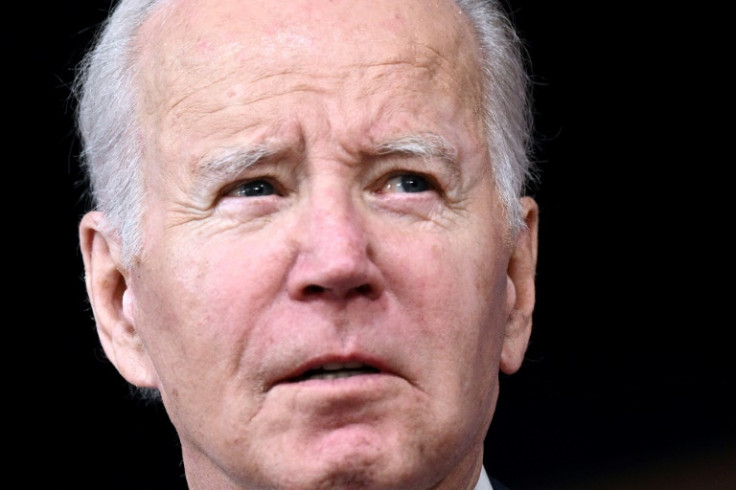
US President Joe Biden's administration is treading a tightrope on Israel, with Washington firmly backing its ally while urging caution and calling for pauses in the fighting to get aid into Gaza.
The 80-year-old has had to balance uncompromising support for Israel's right to defend itself since the October 7 Hamas attacks with concern over the plight of civilians in Gaza and the risks of a wider war.
That balancing act is becoming tougher by the day, with reports that Washington is concerned about Israel's plan of action for a Gaza invasion, and global calls for a ceasefire mounting as Israel bombards the territory.
Thousands of people have been killed on both sides since Hamas militants stormed across the border, executing civilians and seizing hostages, with Israel retaliating with relentless strikes on the Gaza Strip.
The White House publicly insists the United States is not "dictating terms" to Israel, despite having a number of military advisors on the ground there.
"The Israelis are making their own decisions," Biden told reporters on Tuesday, when asked if he had called on Israel to delay a ground invasion.
It has also taken a firm tone on any truce, despite UN Secretary-General Antonio Guterres on Tuesday calling for an "immediate" ceasefire and alleging violations of international law in Gaza.
"A ceasefire right now really only benefits Hamas," National Security Council spokesman John Kirby told journalists on Tuesday.
But the actual US position appears to be more nuanced.
It was Biden himself who appeared to open the door to the subject. He said on Monday when a reporter asked about the possibility of a ceasefire deal that "we should have those hostages released and then we can talk."
That was followed by US Secretary of State Antony Blinken asking the UN Security Council to support a new US-led resolution on the conflict Tuesday that would back "humanitarian pauses" to let in aid but not a full ceasefire.
Kirby followed up by saying the idea was "something that ought to be considered."
"We want to see all measure of protection for civilians and pauses in an operation is a tool and a tactic that can do that for temporary periods of time," he said.
"It's not the same as saying a ceasefire."
Biden meanwhile emphasized the need for Palestinians to get more aid, saying deliveries were "not fast enough," with only a handful of trucks having made it through the Rafah crossing from Egypt.
The balancing act reflects the wider concerns about what a full Israeli invasion could mean.
The New York times reported that Biden's administration was worried that Israel lacked "achievable military objectives" in Gaza, while the Washington Post said Washington had tried to slow an invasion in the days after the Hamas attacks.
US Defense Secretary Lloyd Austin told ABC News over the weekend that invading Gaza could be "more difficult" than the grueling battle to retake the Iraqi city of Mosul from the Islamic State in 2017.
"One of the things US officials have been saying is, look, we've been fighting counterinsurgencies in the Middle East for decades now... You have to think more deeply," Middle East analyst Jon Alterman of the Center for Strategic and International Studies said in an online discussion Monday.
"I don't sense the Israelis are very receptive to that right now. They are still so shocked."
More than 1,400 people have been killed in Israel since Hamas carried out an unprecedented attack on October 7, according to Israeli authorities.
At least 5,791 Palestinians, mostly civilians, have been killed across the Gaza Strip in relentless Israeli bombardments since the attacks, according to the Hamas government's Ministry of Health.
Biden's visit to Israel last week touched on the same theme, even as he showed solidarity with longtime ally Israel.
He urged Israel not to be consumed by "rage" like the United States was after the 9/11 attacks, which he said had led to "mistakes."
Nevertheless, the White House said the world had to be prepared for civilian casualties in Gaza.
"This is war. It is combat. It is bloody, it is ugly, and it's going to be messy and innocent civilians are going to be hurt going forward," the White House's Kirby said.




